The Independent's journalism is supported by our readers. When you purchase through links on our site, we may earn commission. Why trust us?
Eye cream buying guide: Tips on choosing the best formula and how to apply
Everything you need to know about fighting puffiness, reducing dark circles and smoothing lines
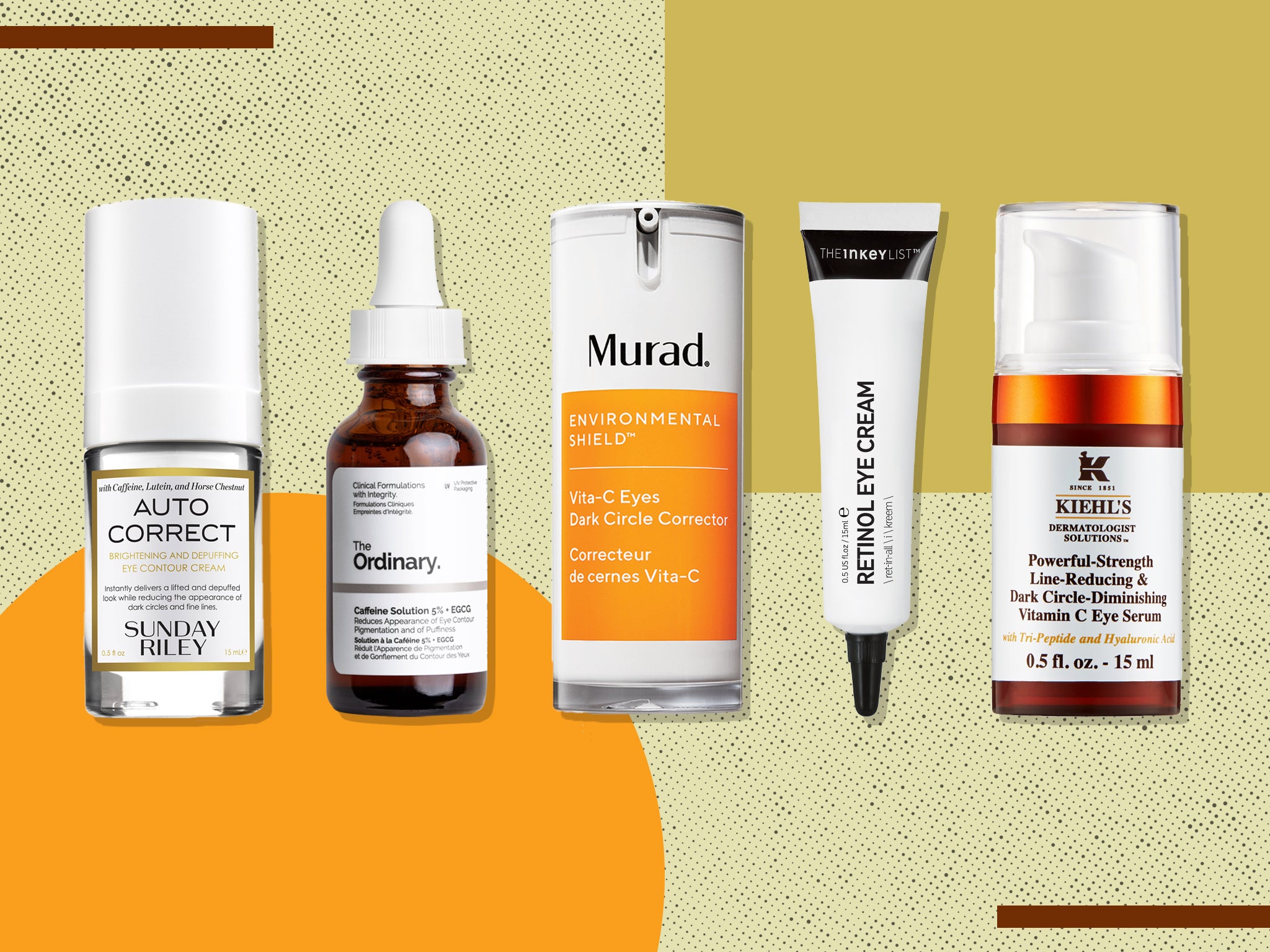
The delicate eye area is one of the first to show visible signs of ageing and the stresses of everyday life. It shows up in the forms of puffiness, dark shadows and lines, which in turn can make us look tired or age us.
If you still look like you’ve had a late night even when you’re getting your eight hours, it’s likely that your current formula isn’t giving you the right results, so it’s time to upgrade and check you’re using it correctly.
It might be tempting to use your favourite serum or moisturiser up to the lash line instead of investing in a separate formula, but we wouldn’t recommend this.
The eye area has skin 10 times thinner than the rest of the face, making it more fragile and sensitive, so most serums and moisturisers are too rich in texture or too strong in actives. If you overload the skin, it can lead to congestion or irritation, and actually make eyes look worse.
A dedicated eye cream that’s been formulated specifically for the area is the way to go, as it will be gentle and light enough for this skin, and free from any ingredients that could cause aggravation. They’ll also contain the best ingredients to make a difference to your eye concerns.
Read more:
You can trust our independent reviews. We may earn commission from some of the retailers, but we never allow this to influence selections, which are formed from real-world testing and expert advice. This revenue helps to fund journalism across The Independent.
What to look for in an eye cream
You need to ask yourself what you want or need from the product, to pick the perfect formula. Whether it’s to de-puff, smooth or brighten, look to these antioxidant and active ingredients backed by experts and research.
Caffeine
Best for: Puffiness
Excess fluid in the tissue under the eye can be caused by many different health problems, allergies and lifestyle choices. The latter is the most likely, as stress, diet and dehydration can play a role. A diet with too much salt and not enough potassium can cause puffiness, but so can excess alcohol or simply not drinking enough water. Fatigue can also be a major cause and a “lack of sleep can also cause fluid to build underneath your eyes, causing them to appear puffy,” explains Daniel Ezra, a specialist ophthalmic and oculoplastic consultant at Moorfields.
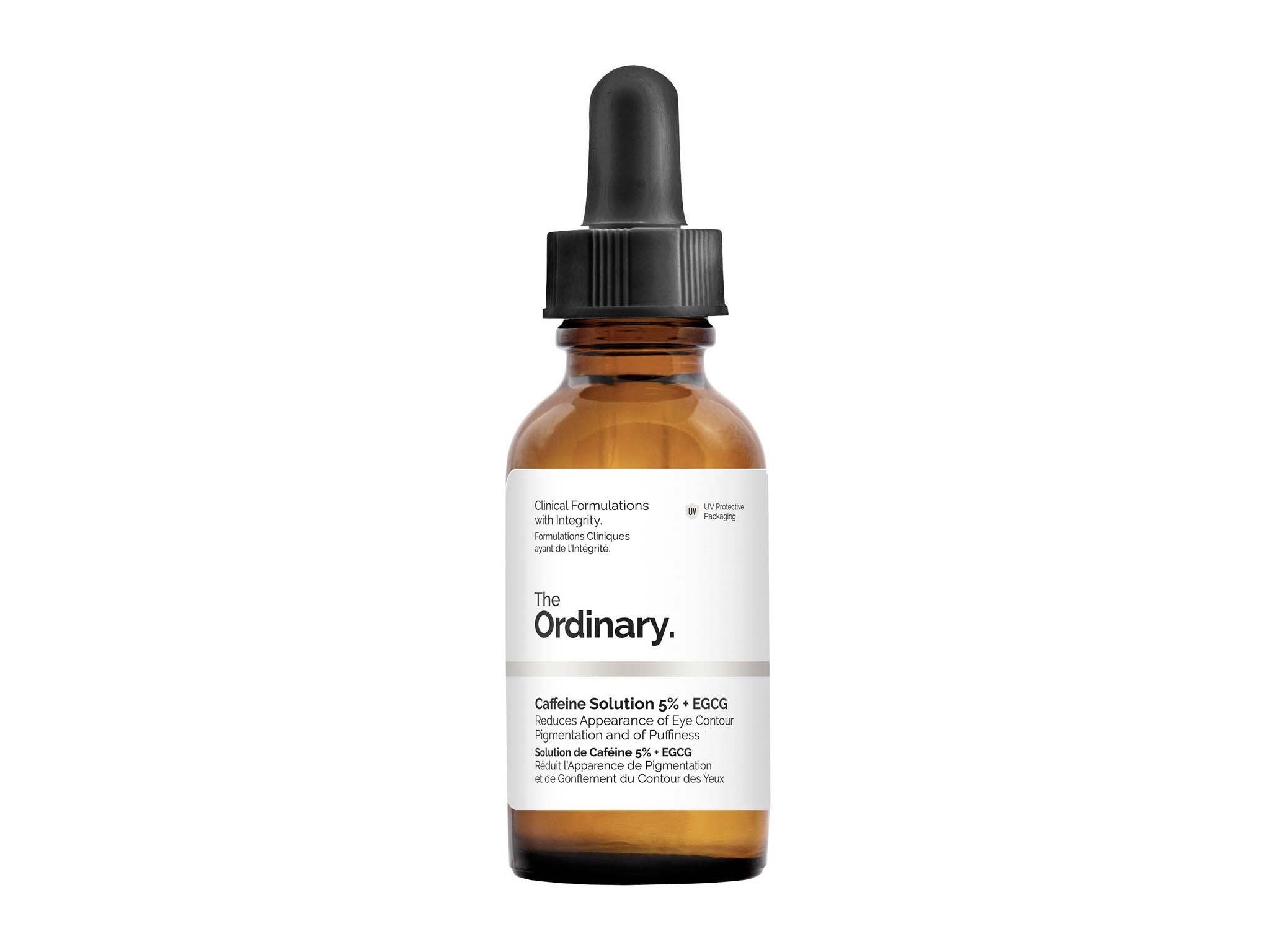
If de-puffing is your main concern, look for eye creams that contain caffeine. Just like your morning cup wakes the body and mind, caffeine stimulates blood flow waking up the skin. It also constricts blood vessels, decreasing inflammation by forming a temporary tightening effect and easing the swelling.
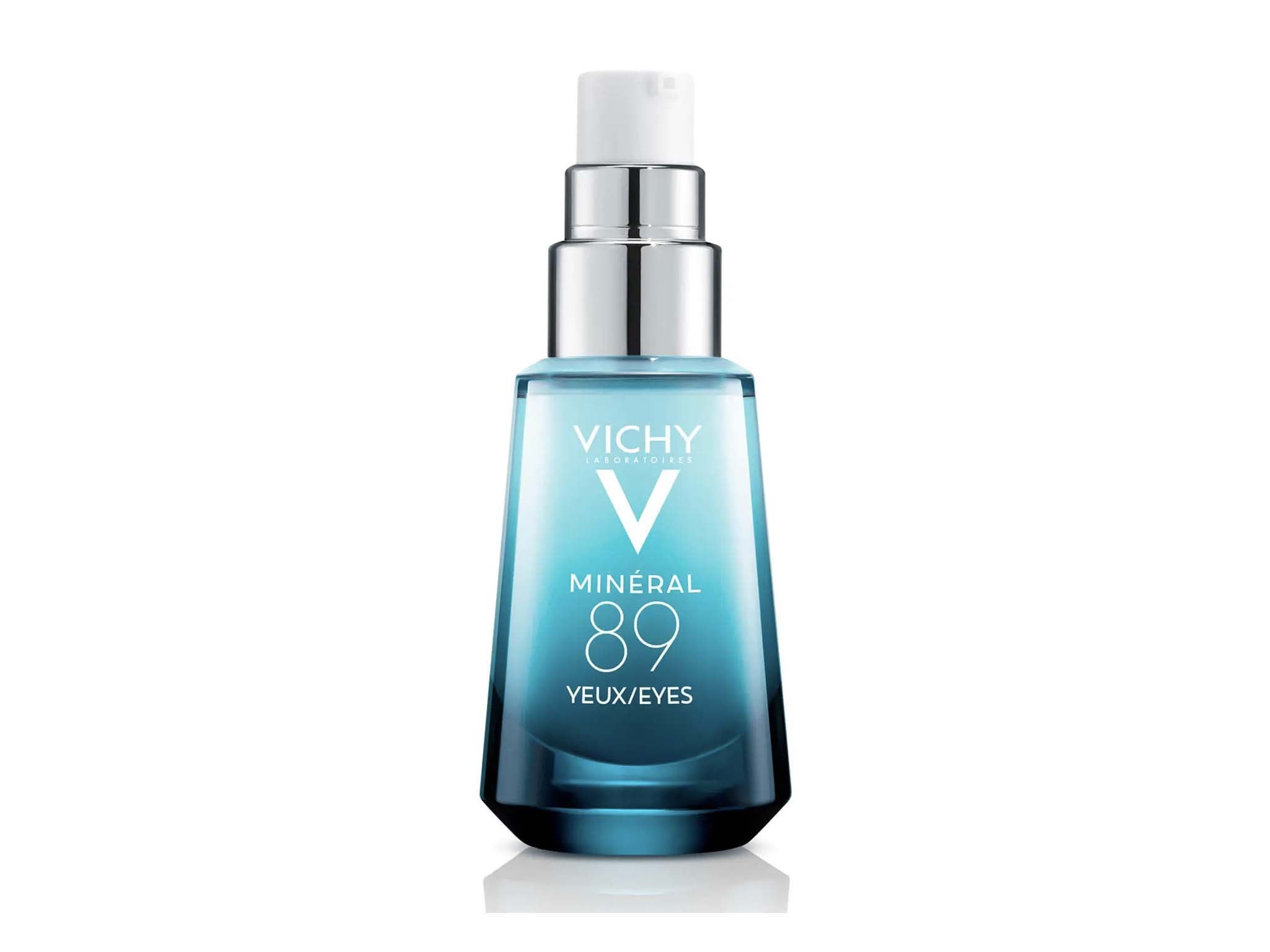
There are caffeine infused eye creams available for every budget. For an effective and affordable option, reach for The Ordinary’s caffeine solution 5 per cent + EGCG (£5.80, Cultbeauty.co.uk). If you suffer from dryness too, try the Vichy’s mineral 89 hyaluronic acid eye fortifier (£20, Lookfantastic.com) is packed with – as the name suggests – our favourite moisture booster. And for a light-reflecting formula that instantly brightens, look to Sunday Riley’s auto correct brightening and de-puffing eye contour cream (£60, Spacenk.com).
Vitamin C
Best for: Brightening
If dark circles are your main bugbear, it’s important to be realistic as an eye cream can’t eradicate them if it’s down to age or genetics. Collagen and elastin production decreases as we age, so our skin gets thinner, and the blood vessels in the area show through creating a darker colour. If you’ve had these shadows for a long time they are most likely hereditary. Look for light-reflecting formulas to create the illusion of a brighter under eye, like Murad’s environmental shield vita-C eyes dark circle corrector (£55.90, Feelunique.com). And invest in an illuminating concealer.
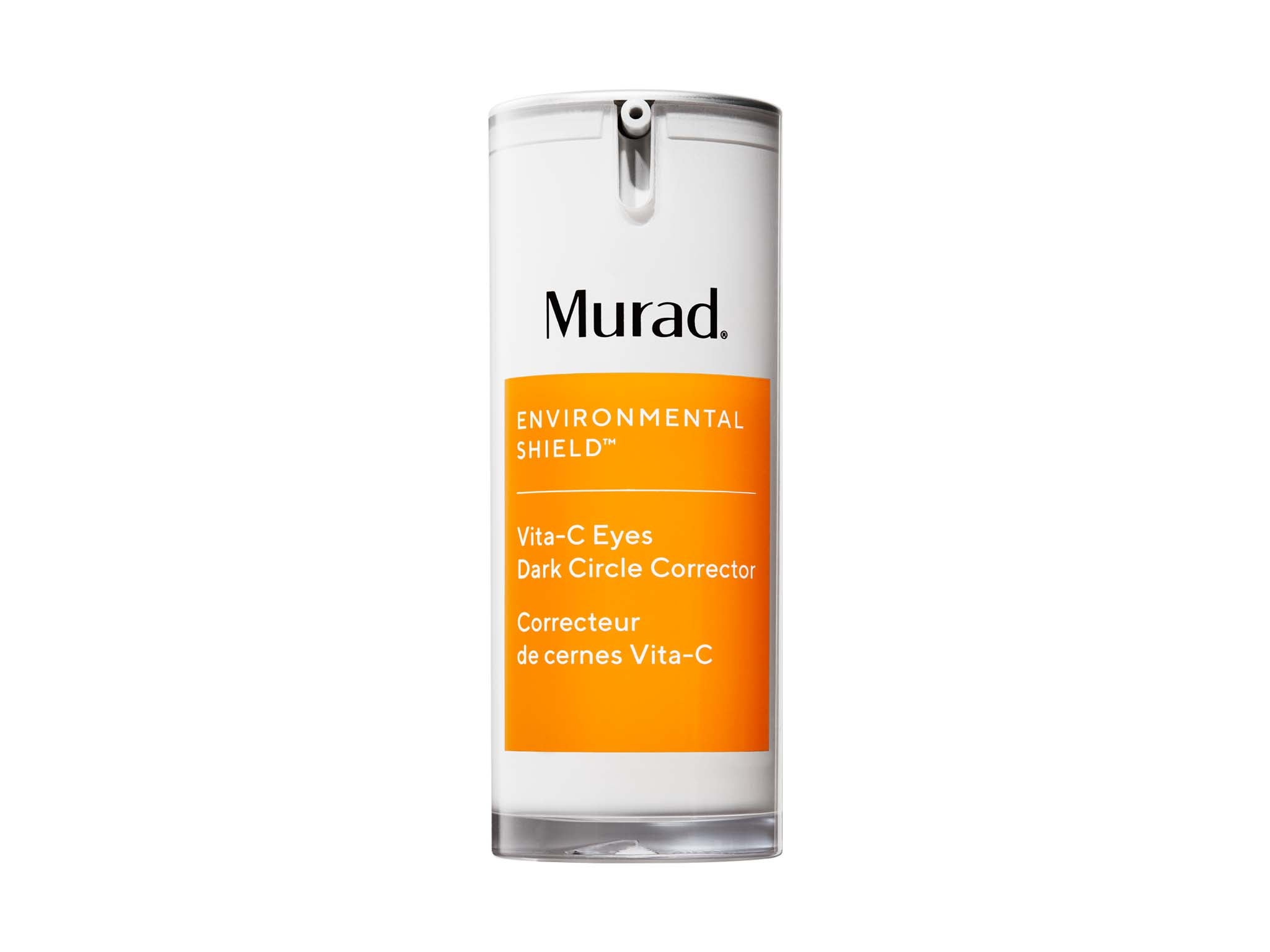
Shadows can also be down to pigmentation, an accumulation of melanin in the area. Reach for eye creams rich in skin-brightening powerhouse vitamin C. The active can help fade it over time, as well as provide antioxidant protection and stimulate collagen production.
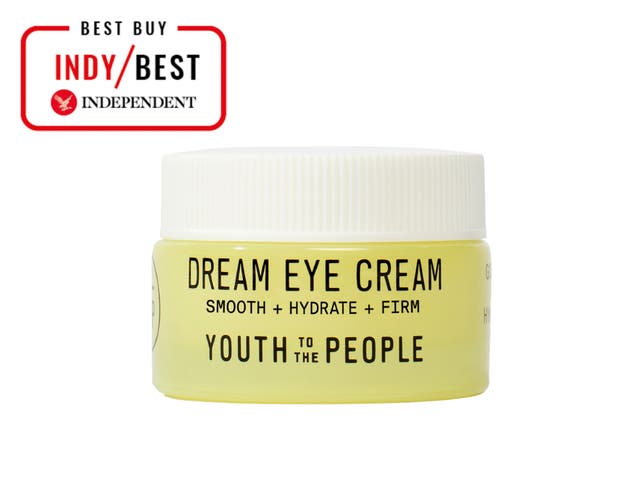
Taking the top spot in our best eye cream round-up, Youth to the People’s eye cream (£42, Cultbeauty.co.uk) contains a stable form of vitamin C to firm and brighten, as well as repairing ceramides and hydrating hyaluronic acid. Hot off the beauty line, Lancome’s advanced genifque yeux eye cream (£45, Lookfantastic.com) combines the radiance-booster with a skin strengthening prebiotic and probiotic formula. We also found the Kiehl’s powerful-strength line-reducing and dark circle-diminishing vitamin C eye serum (£41, Feelunique.com) with hyaluronic acid super-hydrating.
Retinol
Best for: Fine lines and wrinkles
The effects of facial movements and expressions can cause the skin to crease, as our skin becomes less resilient and we lose elasticity as we get older. If you’re looking to fade these lines it’s time to invest in a retinol formula.
Retinol has the science behind it to prove it stimulates collagen production and speeds up skin cell renewal, making it a game-changing skincare ingredient for not just softening lines and wrinkles, but fading pigmentation too. Just remember as with all retinol skincare, to introduce the ingredient slowly into your routine so you can build up tolerance to it.
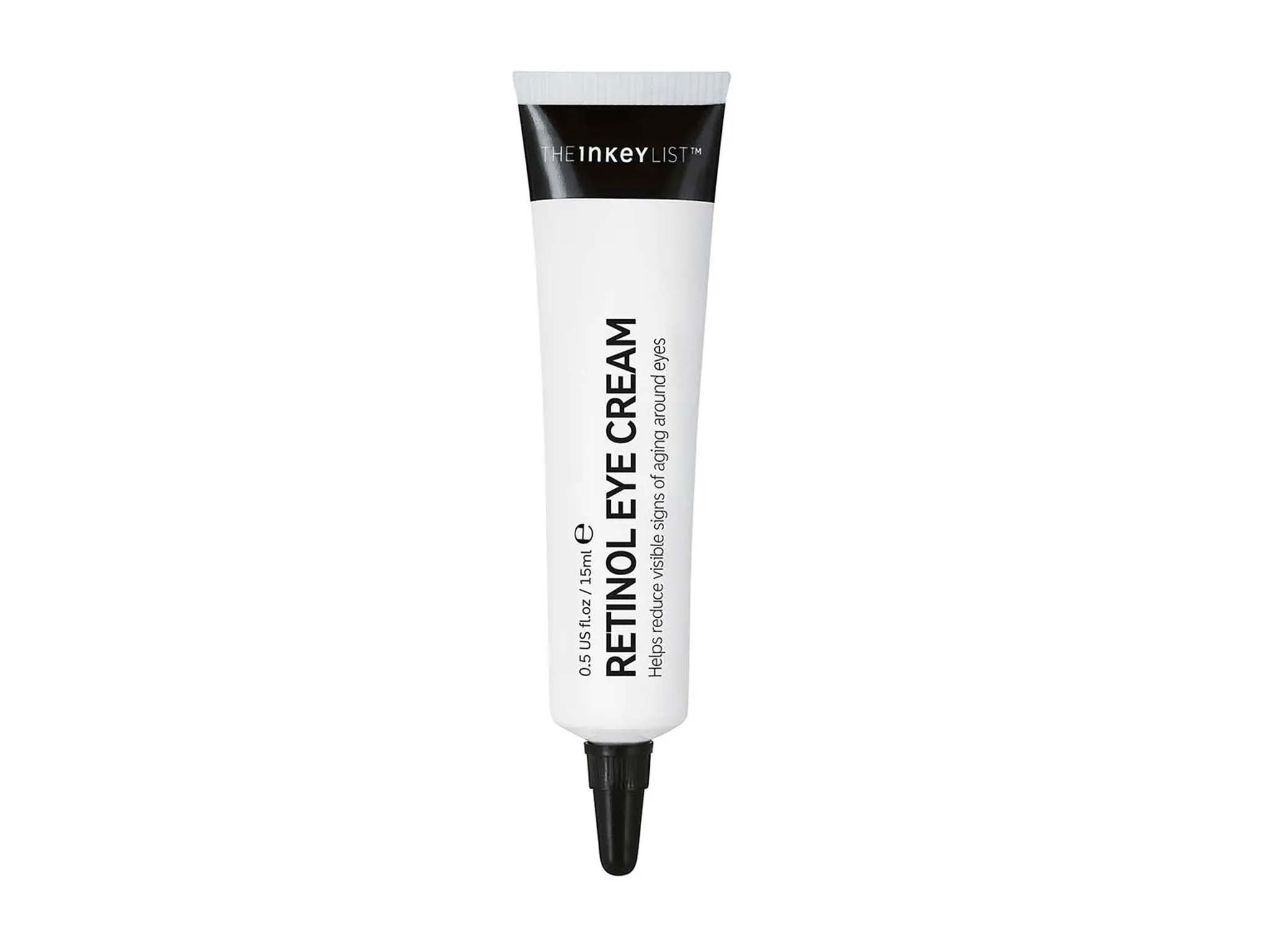
For a purse-friendly option, try The Inkey List’s retinol eye cream (£9.89, Feeunique.com) – a gentle time-release formula. La Roche Posay’s redermic anti-ageing anti-wrinkle eye cream (£27, Boots.com) is formulated for sensitive skin, meaning it’s also gentle enough for those new to retinol. If you’re looking for lifting and firming effects too, reach for the Shiseido’s vital perfection uplifting firming eye cream (£68, Cultbeauty.co.uk).
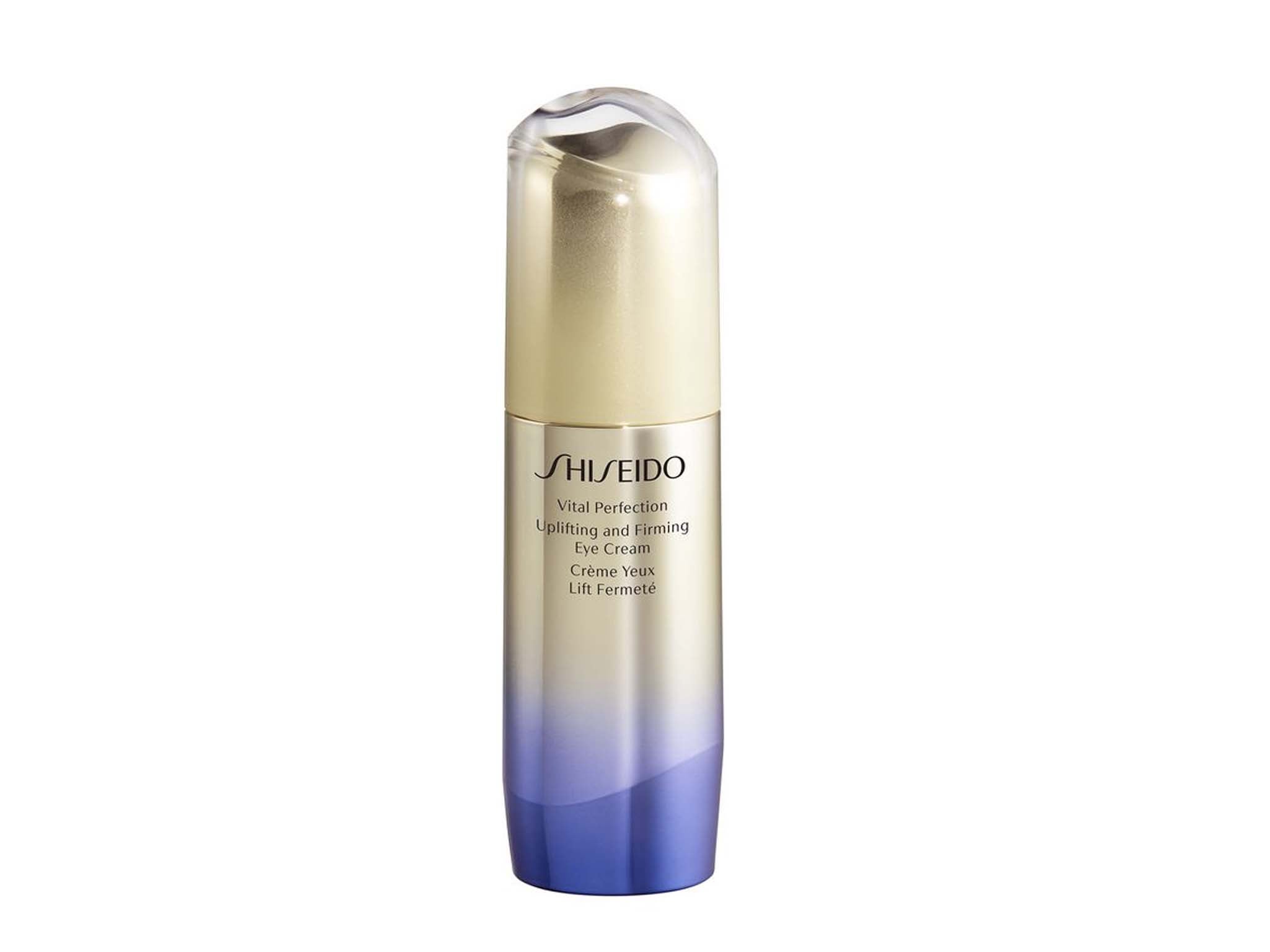
Eye cream FAQs
How do you apply eye cream?
Start with a small pea-sized amount for both areas, you don’t need any more than that. “Do not use more product than necessary, as there’s a chance it can get in the eyes and cause irritation,” says Dr Anjali Mahto, consultant dermatologist. More product doesn’t lead to greater efficacy, in fact, the opposite is true – overloading the area can lead to puffiness. Be mindful of this when you apply your moisturiser too.
“The main thing is to apply gently, without tugging or pulling,” warns Dr Christina Psomadakis, a dermatologist for Vichy. “An easy way to do this is to dab and pat the product with your ring finger around your orbital area.” It’s your weakest finger so it applies the least amount of pressure on the fragile area. By patting the whole eye contour, up through your brow bone you target the whole area.
When should you apply eye cream?
It’s a common mistake to apply eye cream as the last step in a skincare routine when the best time to apply it is “after cleansing and before applying your serum, moisturiser or SPF,” advises Dr Mahto. It’s best practice to apply the lightest products first, such as eye cream, as it can’t penetrate thicker moisturisers and oils.
Most eye creams are designed to be used morning and night. “Although I’d advise people that wake up with puffy eyes after a night’s sleep to not apply eye cream at night, as it could exacerbate it,” explains Abigail James, skincare and wellbeing expert. Try storing it in the fridge for an extra cooling effect when you apply – perfect for a morning wake-up or an evening soothe. If applying make-up on top, always give it a minute or two to sink in to avoid concealer caking.
How long does eye cream take to work?
It depends on what benefits you want to see. Eye creams packed with hyaluronic acid or caffeine will work instantaneously, combating dryness and de-puffing. But for more long-term effects, as with all skincare, you need to give your eye cream time to work – “at least five to six weeks which is the average natural skin cycle,” advises James. Some ingredients can even take longer, “retinol or vitamin C start working right away at a cellular level, but results won’t be visible until several months of use,” warns Dr Psomadakis.
The verdict: Eye creams
Whatever your eye concern, be it puffiness, dark shadows or lines and wrinkles, there’s an eye cream specifically formulated for the delicate eye area to target them. Keep an eye out for ingredients backed by science, so they’ll actually deliver on their promises. Caffeine will de-puff, vitamin C will brighten, and retinol will smooth fine lines. The key is to stick with the product to see results.
Voucher codes
For the latest offers on beauty and skincare, try the links below:
We tested the Fenty Beauty bright fix eye brightener to see whether it can tackle our dark circles